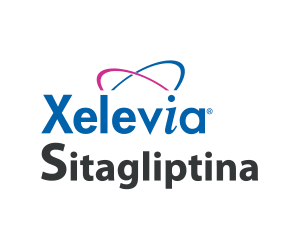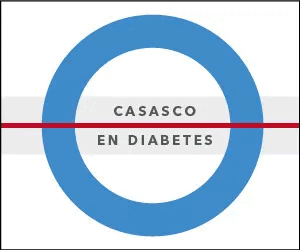Symposium 17: To the rescue of the beta cell
DOI:
https://doi.org/10.47196/diab.v54i3Sup.332Keywords:
beta cell, diabetesAbstract
Symposium 17: Beta Cell Failure
To the rescue of the beta cell
Pancreatic β cells are specialized to release insulin in the event of any increase in blood glucose through a complex, highly regulated mechanism that ensures the maintenance of their homeostasis. There are multiple genetic and environmental factors that threaten the functional integrity of β cells and are responsible for the progression from the normal state to prediabetes or type 2 diabetes mellitus (DM2).
Currently we have various pharmacological tools that can recover its secretory function, but none is capable of recovering its mass, which is why it is essential to prevent its loss. The consumption of unbalanced diets, particularly diets rich in beverages sweetened with high fructose syrup (DRF), promotes the breakdown of metabolic homeostasis and the emergence of a state of insulin resistance (IR) that already manifests itself in the stage of prediabetes.
References
-1- Vasiljević J, et al. The making of insulin in health and disease. Diabetologia 2020; 63: 1981-1989.
-2- Román CL, et al. Islet NADPH oxidase activity modulates β-cell mass and endocrine function in rats with fructose-induced oxidative stress. BBActa 2014; 1840: 3475-3482.
-3- Maiztegui B, et al. VMP1-related autophagy induced by a fructose-rich diet in β-cells: its prevention by incretins. Clin. Sci 2017; 131:673-687.
-4- Lean MEJ, et al. Durability of a primary care-led weight-management intervention for remission of type 2 diabetes: 2-year results of the DiRECT open-label, cluster-randomised trial. Lancet 2019; 7:344-355.
Downloads
Published
How to Cite
Issue
Section
License

This work is licensed under a Creative Commons Attribution-NonCommercial-NoDerivatives 4.0 International License.
Dirección Nacional de Derecho de Autor, Exp. N° 5.333.129. Instituto Nacional de la Propiedad Industrial, Marca «Revista de la Sociedad Argentina de Diabetes - Asociación Civil» N° de concesión 2.605.405 y N° de disposición 1.404/13.
La Revista de la SAD está licenciada bajo Licencia Creative Commons Atribución – No Comercial – Sin Obra Derivada 4.0 Internacional.
Por otra parte, la Revista SAD permite que los autores mantengan los derechos de autor sin restricciones.







































